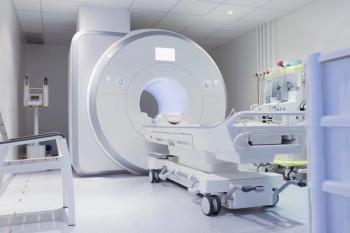
Technology
Latest News
Latest Videos

Podcasts
CME Content
More News

New research suggests stress cardiac MRI could help diagnose angina and improve quality of life for patients whose arteries appear clear on angiography.

Experts discuss the intersection of innovation, affordability, and access in cancer care, focusing on multiple myeloma and NSCLC advancements.

Oncology experts at PCOC 2025 discuss breakthrough therapies, AI-driven care, and evolving care delivery models shaping the future of oncology.

Explore how the WISeR Model addresses prior authorization reform, Medicare costs, and AI's role in tackling the health care affordability crisis.

Medbridge is working to refine remote therapeutic monitoring, or RTM, to transform physical therapy and enhance patient care.

Using artificial intelligence (AI) to specialize treatment for patients with different kinds of cancer can be a boon to clinicians looking to personalize their care.

Jo Varshney, PhD, DVM, discusses how artificial intelligence–powered simulations speed drug approvals and reduce clinical trial risk.

Harry Travis, BS Pharm, MBA, explores how artificial intelligence (AI) can revolutionize pharmacy workflows for sustainable productivity gains.

In the midst of a government shutdown, former House Speaker Paul Ryan urges clear policies, AI innovation, and patient-focused solutions to build a sustainable US health care system.

AI can transform health care by processing vast data, enhancing decision-making, and addressing biases, but needs remain for transparency and human oversight.

Discover how the SkinTracker app enhances AD management through remote assessments, offering convenience and accuracy comparable to in-person visits.

AI-powered mammography is enhancing breast cancer screening and early detection through cutting-edge radiology insights.

Digitized behavioral cough suppression therapy is a safe, highly effective, and accessible alternative to drugs for chronic cough, said Laurie Slovarp, PhD.

Telehealth medication abortion service requests double after the Supreme Court's Dobbs ruling, as patients seek accessible and cost-beneficial care.

Telehealth abortion requests doubled after the Dobbs decision, especially for those far from clinics or seeking care before 6 weeks of pregnancy.

Phenotyping patients can help to identify potential heart failure with preserved ejection fraction (HFpEF) as well as improve patient outcomes.

Remote monitoring and algorithm-based tools help pharmacists balance complex workloads in value-based care, says Lindsey Valenzuela, PharmD.

Digital tools help prevent burnout, anxiety, and exhaustion among health care workers.

Lindsey Valenzuela, PharmD, explains how pharmacists can prevent drug interactions and improve coordination for women with arrhythmia and chronic disease.

Lindsey Valenzuela, PharmD, explains how cost, coverage gaps, and tech literacy hinder women’s access to early arrhythmia detection tools.

An innovative artificial intelligence (AI) tool enhanced alopecia areata assessment and improved treatment adherence.

Vivek Subbiah, MD, says artificial intelligence (AI) should assist clinicians in precision oncology, not replace human decision-making.

A self-help app based on cognitive behavioral therapy improved depression, self-esteem, and quality of life in adults with intellectual disabilities.

Telemedicine improved the quality of life and inhaler technique among patients with advanced-stage chronic obstructive pulmonary disease (COPD).

A CCS report found that pharmacists lack time for diabetes education as workloads rise, worsening disparities and threatening adherence.



















